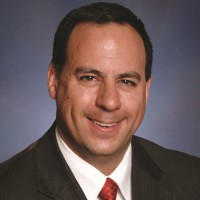On July 27, 2016, Indian Country Today Media Network.com named NAFUSA members Tim Purdon, Brendan Johnson and Troy Eid to their Five for Fighting Indian Law Practitioners: 2016 Hot List. Suzette Brewer describes the virtues of each:
When Tim Purdon and Brendan Johnson left the U.S. Attorney’s office in North Dakota and South Dakota, respectively, to create the American Indian law division at the national firm of Robins Kaplan LLP in 2015, it caused a minor earthquake in the Indian law community. Many wondered how the Feds would fill these enormous gaps, who would match their many accomplishments. In just under five years as federal prosecutors, they made the radical decision to shift away from decades of friction with the tribes to forge a more collaborative approach to improving public safety on Indian reservations in the Dakotas.
In the last year, the two close friends―known as the “Dakota Boys”―have translated that approach to develop the American Indian law division at Robins Kaplan, pushing into new territory as they represent tribal clients, including the Rosebud Sioux Tribe, who recently sued the Indian Health Service for closing down the only emergency room on its reservation in South Dakota, as well as successfully representing Oglala Sioux tribal member Alex White Plume in his industrial hemp case.
Fresh out of Stanford and working as a young legislative assistant to Congressman Jim Kolbe of Arizona in the mid-1980s, Troy Eid was thrown in the deep end of tribal politics when he was sent to Arizona to talk with the Navajo Nation leadership regarding the tribe’s appropriations requests. Instead of being politely rejected as another “white” Washington player, the tribe accepted and understood the 22-year-old Eid, who is of Egyptian heritage. “They saw my not being white as positive, rather than negative – as had sometimes been the case when I was growing up,” says Eid, whose father emigrated to the United States from Egypt in 1957. “So while I’m not Native American, they made me feel immediately comfortable in Indian country. I’ve felt that way ever since.”
After joining Greenberg Traurig in 2003, he helped establish a formal American Indian law division within the firm.




You must be logged in to post a comment.